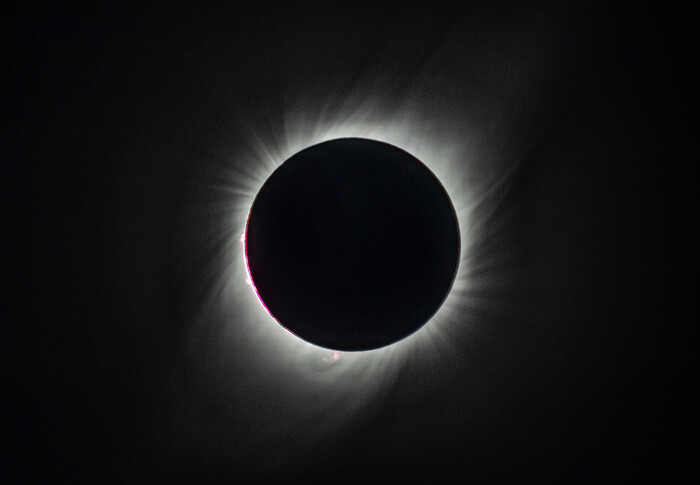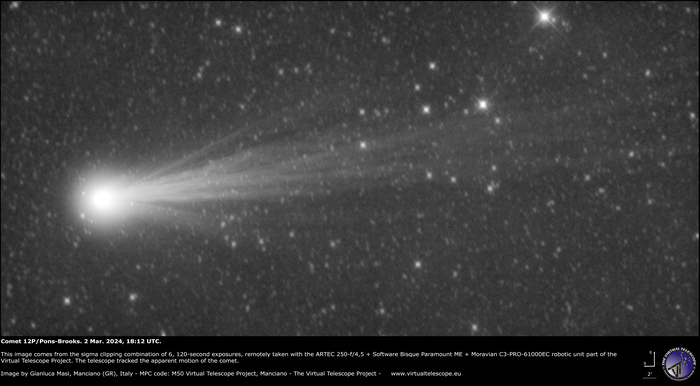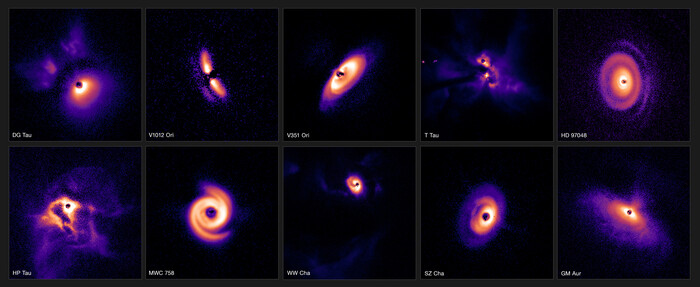Enlarge image
Representation of a black hole
Photo: Mark Garlick/Science Photo Library/Getty Images
Quasars are like the glowing hearts of galaxies.
Despite their great distance, they emit such intense radiation in the centers of distant Milky Ways that they can sometimes be seen even with solid amateur telescopes.
As radio astronomy really took off after World War II, astronomers discovered more and more conspicuous objects in the sky.
Among them were bright quasars that they initially thought were strange stars.
In the absence of a name, Dutch-born astronomer Maarten Schmidt dubbed it the quasi-stellar radio source.
This is where the term quasar came from.
The mass of an earth every second
We now know that entire galaxies lie hidden behind these quasars, which, to the astonishment of astronomers at the time, were billions of light years away.
And in their centers black holes rage.
An international team of astronomers has now discovered a special quasar.
According to them, this galaxy is home to an extremely fast-growing black hole.
The team led by Christopher Onken from the Australian National University (ANU) in the Australian capital Canberra is surprised that the dead star was not discovered sooner.
»Astronomers have been searching for objects like this for more than 50 years.
They found thousands of fainter objects, but this amazingly bright one slipped through unnoticed,” says Onken, who also spoke of a needle in a haystack.
The black hole has the mass of three billion suns and is swallowing up the equivalent of one Earth every second.
In addition, it shines 7000 times brighter than the entire light of our own galaxy, the researchers reported in a previously unpublished study on the preprint platform Arxiv.
The research results, which have not yet been reviewed by peers, as is usual with peer-reviewed publications, must therefore still be viewed with a certain degree of caution.
Comparable black holes stopped growing rapidly billions of years ago
However, the team is already enthusiastic about their discovery.
One should never say never, according to Christian Wolf, one of the co-authors.
But the black hole is such an outlier that he doesn't think anything like it will ever be found again.
“We are quite confident that this record will not be broken.
Basically, we no longer have a sky in which objects like this could hide,” says Wolf.
Other black holes of a similar size stopped growing billions of years ago.
In fact, black holes have the property of causing matter to disappear irretrievably once it has crossed the so-called event horizon.
But there are also black holes that eat relatively little dust and gas and are relatively inactive.
One such is located, for example, in the heart of our Milky Way.
However, it is around 500 times smaller than the one just discovered.
The orbits of all of our solar system planets would fit within the event horizon.
The researchers found the object during the SkyMapper Southern Survey (SMSS), a project to explore the southern sky with the Siding Spring Observatory, which is located near Coonabarabran, about 450 kilometers north-west of Sydney .
Possibly two large galaxies collided and threw a lot of material into the black hole to feed it, he surmised.
joe/dpa


/cloudfront-eu-central-1.images.arcpublishing.com/prisa/TQ73US57UFGWTIXR7C3BS2OTIA.jpg)






